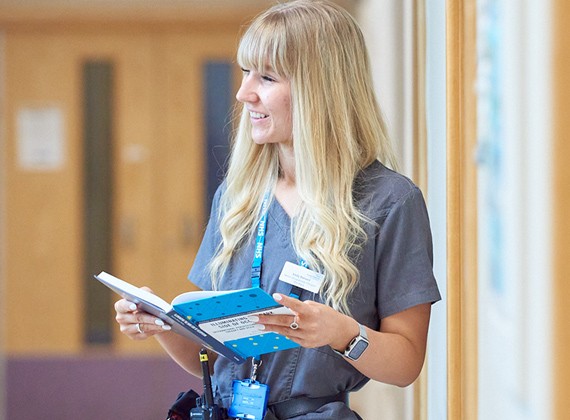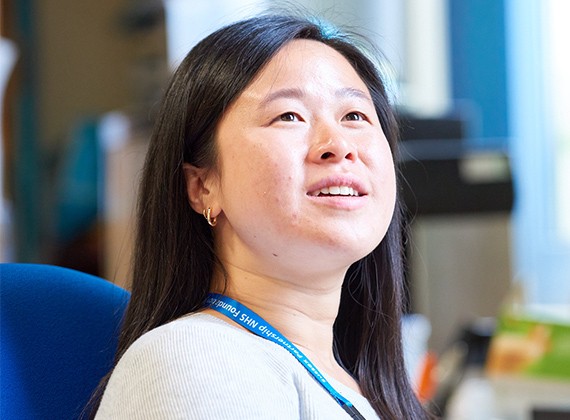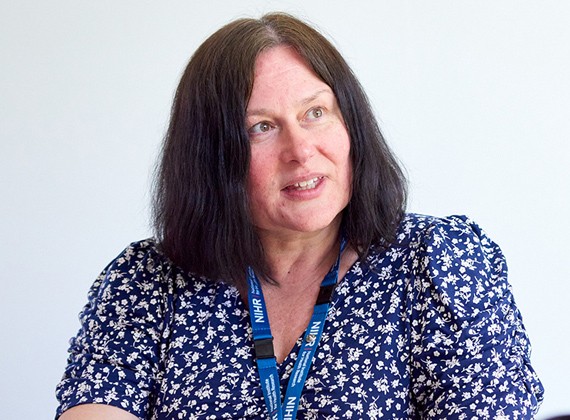
CRIS
Sussex Clinical Records Interactive Search (CRIS) System
Sussex Partnership has joined the Sussex Clinical Records Interactive Search (CRIS) System, a computer information system that will allow us to carry out research, assess the effectiveness of our treatments and identify ways we can improve our services.
The CRIS system will process our electronic clinical notes and records, de-identifying them so that we are able to look at real life situations and cases, without breaching patient confidentiality. Using this tool will allow us to see when there are patterns and trends emerging in mental health, service use and treatments. Our researchers will be able to use your data to help expand our understanding of medical conditions and improve the treatments and services that are being provided by the NHS and other organisations.
Download the information leaflet for more details.
Examples of studies using CRIS
We believe CRIS can make a real and positive difference to future treatments and care. Looking at information available from a lot of different patients and services makes it easier to see patterns and trends; what works for some and does not for others. Here are some things that have been looked at using CRIS systems in other Trusts:
- Is there a test for those with Alzheimer’s disease that can show if medication would be the best course of treatment?
- Do some drugs for schizophrenia affect physical health, for example diabetes?
- Do people’s home living arrangements affect how long they spend in hospital wards?
Frequently asked questions (FAQs)
We have compiled some FAQs to answer some of the questions you might have.
If there is any information which is not covered in the FAQs, or if you have any questions or concerns, please email spft.CRISAdministrator@nhs.net.
We hold an electronic record of anyone who is using or has used our services. The CRIS system will use these records and remove all information that may identify a person (names, addresses, date of birth, telephone number) and only allow access to anonymised data, such as symptoms and demographic information, to be used for the purpose of clinical research.
Approved studies can use CRIS to gain access to information collected routinely by the Trust. This enables clinical researchers to base their analyses and recommendations on large sets of complete real-life data, which allows in-depth evaluation of medical conditions and treatments and allows our services to plan accurately for treatments that meet our current and future patient needs.
The information in CRIS is protected by strict information security and by law. NHS organisations store information on a dedicated national computer network called the Health & Social Care Network (HSCN) - your personal data will not leave this network. CRIS has also received ethical approval from an independent committee as a secure and confidential information source for research and is already running safely at different NHS Trusts in England.
CRIS will only be available for use by researchers who are working with Sussex Partnership on approved projects. These researchers may work within the Trust and/or in other collaborating organisations, such as another NHS trust that is developing a new treatment, or a company that is developing a new medicine.
The Trust has also set up an Oversight Committee, consisting of clinicians and service users, to direct and regularly review the way CRIS is being used.
CRIS transforms clinical information so that service user’s clinical details can be used in research, but personal details cannot. Any information that could identify an individual is removed. This process is called de-identification. For example, name, date of birth, address, etc. are replaced with the letters ‘ZZZZZ’. Researchers accessing data would only see information which has been anonymised in this way and would not have access to any personal information.
This is an example of how the de-identified information would appear:
‘January 6 2014 ZZZZZ ZZZZZ ZZZZZ ZZZZZ
ZZZZZ Dear ZZZZZ Re: Mindfulness Group
I am writing to confirm that the next group will commence on Monday 3 February 2014 for 10 weeks.’
We may link information about an individual’s treatment and care in the Trust with other aspects of their health, to help us understand physical and mental health as a whole. For example, information about patients who had both mental health problems and cancer could be linked to look at the impact of mental wellbeing on cancer survival rates. CRIS enables us to do this in a format that will not identify them.
Whilst we fully believe that the CRIS system will make a real difference to improve the services and treatments we provide, we understand that some people might have reservations about their data being used in this way.
Patients can opt out at any point and their data will not be transferred or if already transferred, will be removed from use. To opt out please email spft.CRISOptOut@nhs.net or speak to you lead practitioner. Your care will not be affected in any way. Please note, this is different to the GP data opt out (type 1 opt out) scheme.
Additionally, there is a national NHS data opt out which enables patients to stop their confidential patient information from being used for research and planning. If you choose to opt out of the national service, you will automatically be opted out for the CRIS system. For more information, please visit the 'Your NHS Data Matters' webpages on the NHS website.


